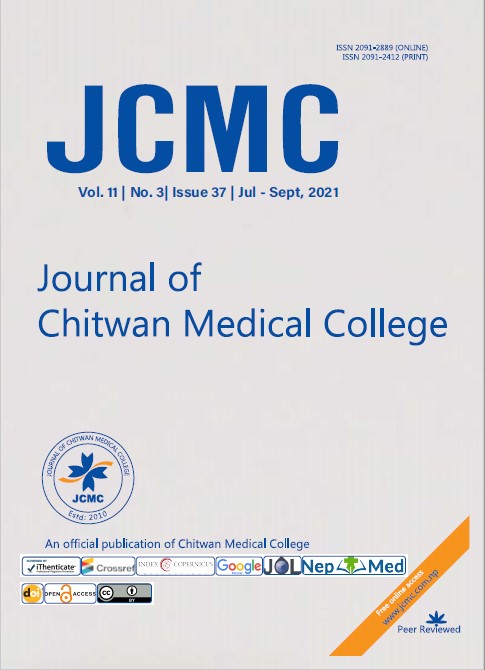Pattern of ocular trauma and visual outcome in patients attending national referral eye hospital of Eritrea
Keywords:
BETTS; Ocular trauma; Ocular trauma score; Visual outcome.Abstract
Background: Ocular trauma has been a significant disabling health problem and a leading cause of visual loss in lower-middle-income countries. These injuries have many diverse costs including human suffering, long-term disabilities, loss of productivity, and economic hardship. This study was aimed to describe the pattern of ocular trauma, its visual outcome, and the overall epidemiology of ocular trauma in all patients presenting to Berhan Eye Hospital, Asmara, Eritrea.
Methods: A prospective observational study was conducted on ocular trauma patients who presented to Berhan Eye Hospital for the open globe, closed globe, and peri-orbital trauma from September – November 2018 after ethical approval from the Ministry of Health, Eritrea. Data on demography, initial and final visual acuity, type of injury as well as its outcome were collected using U.S Eye Injury Registry checklist. The types of injuries were classified according to Birmingham Eye Trauma Terminology System (BETTS), SPSS Version 22 was used.
Results: Ocular trauma accounted for 1.94% of the total patients attending the outpatient department (OPD) and emergency during the studied period. Of the studied 280 participants, 218 (77.9%) patients were below 40 years of age. The male to female ratio was 2.4:1. Closed globe injuries accounted the highest 205 (73.21%) followed by the open globe injuries 75 (26.79%). Home and industrial premises were the main places where ocular injuries occurred in the participants.
Conclusions: Ocular trauma affects mainly the younger age group. Blunt objects trauma in the eye are more common in low resource settings. Ocular trauma is an important cause of monocular blindness which can be prevented with early intervention and health promotion.
Downloads
Downloads
Published
How to Cite
Issue
Section
License
Copyright (c) 2021 Pradeep Bastola, Amir Ibrahim, Danait Michael, Hermela Misghna, Rut Russom, Polina Dahal, Femi Ibrahim

This work is licensed under a Creative Commons Attribution 4.0 International License.




